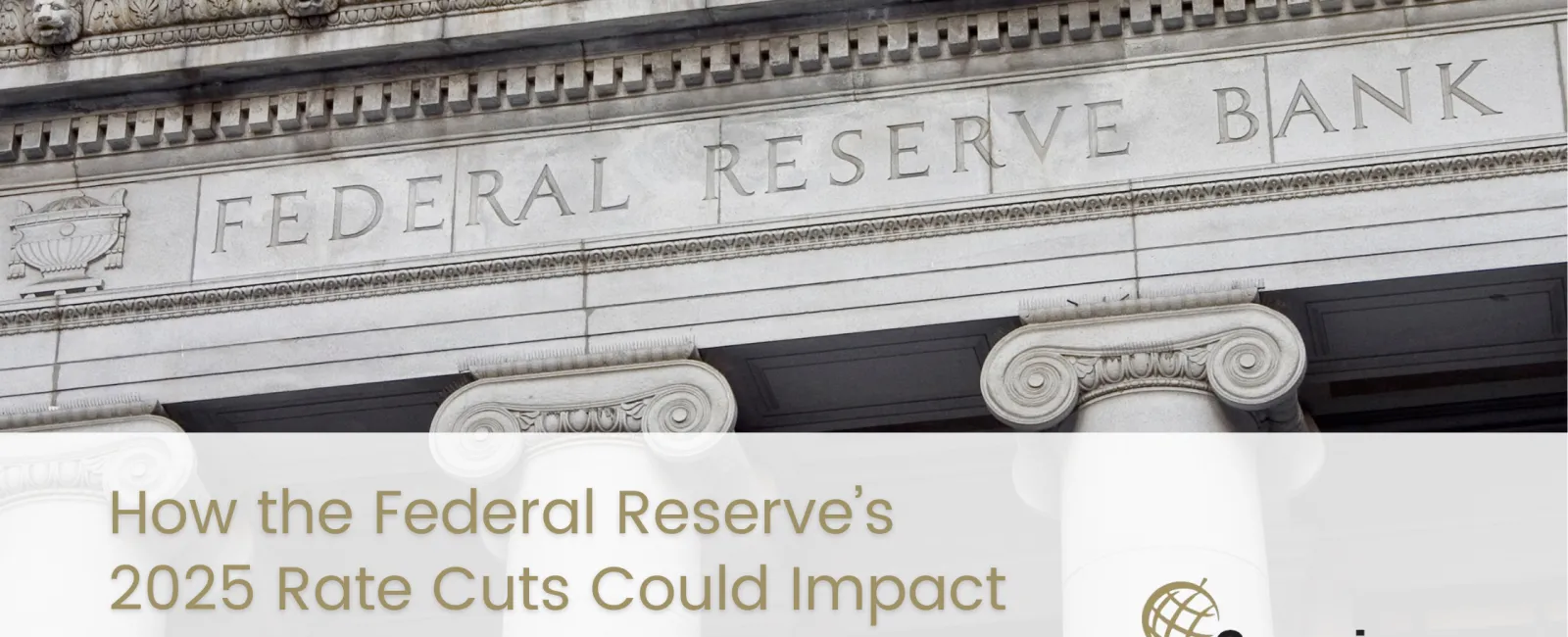Interest rates play a crucial role in shaping the financial landscape. After a period of aggressive rate hikes in 2022 and 2023, the Federal Reserve has shifted gears, implementing rate cuts in 2025 to support economic growth.
But what do these changes mean for your savings, investments, and borrowing costs? Whether you're saving for retirement, investing in the market, or considering a major purchase, it's important to adapt your financial strategy accordingly.
At Genesis Financial Group, we help clients navigate changing economic conditions with tailored financial planning and investment strategies. This guide explains how lower interest rates in 2025 may affect you—and how working with an experienced financial advisor can help you make informed decisions.
Disclosure: This content is for educational purposes only and does not constitute financial or investment advice. Please consult us directly or a qualified financial advisor before making any financial decisions.
Why Is the Federal Reserve Cutting Interest Rates in 2025?
The Federal Reserve adjusts interest rates to maintain economic stability. In 2022 and 2023, the Fed raised rates to combat high inflation. By late 2024, inflation had cooled, allowing for rate cuts in 2025 to stimulate growth.
What This Means for Consumers & Investors
✔ Lower borrowing costs (mortgages, auto loans, and business financing)
✔ Reduced savings account interest rates
✔ Potential stock and bond market shifts
How Lower Interest Rates Could Affect Savings
1. Lower Savings Account and CD Rates
With interest rates declining, banks typically reduce the rates they offer on savings accounts and certificates of deposit (CDs).
🔹 What to Consider:
✔ If you rely on a high-yield savings account, expect lower returns.
✔ Fixed-rate CDs may be beneficial if locked in before further rate reductions.
✔ Some alternative savings options (e.g., Treasury bonds, money market funds) may still provide competitive returns.
2. Money Market Accounts & Treasury Securities
Money market funds, which provided higher yields in 2023 and 2024, may also decline. However, certain government-backed securities may continue offering stable returns.
🔹 What to Consider:
✔ Treasury Inflation-Protected Securities (TIPS) could help safeguard savings from inflation.
✔ Diversified cash management strategies may be useful in a lower-rate environment.
How Lower Interest Rates Could Impact Investments
1. Stock Market Trends: What Investors Should Know
Lower interest rates can impact stock market performance in various ways. Historically, rate cuts have benefited certain sectors, but market conditions vary based on economic trends.
🔹 What to Consider:
✔ Some growth sectors (such as technology) have historically performed well when rates decline.
✔ Investors may shift toward dividend-paying stocks for steady income.
2. Bond Markets: Changing Yield Expectations
Interest rates and bond prices move inversely—as rates fall, bond prices rise, but new bonds offer lower yields.
🔹 What to Consider:
✔ If you hold existing higher-yield bonds, their value may increase.
✔ Longer-term bonds may become more attractive.
✔ Bond strategies should align with income needs and risk tolerance.
How Lower Interest Rates Could Affect Borrowing Costs
1. Mortgage Rates & Home Buying Decisions
Mortgage rates, which peaked above 7% in 2023, have declined in 2025, making home purchases and refinancing more attractive.
🔹 What to Consider:
✔ Lower rates may improve home affordability.
✔ If you already own a home, refinancing could reduce your monthly payments.
✔ Fixed-rate and adjustable-rate mortgages (ARMs) have different pros and cons.
2. Credit Cards & Personal Loans
Credit card interest rates and personal loan rates are often tied to Fed rate changes. As rates decline, borrowing costs may become more favorable.
🔹 What to Consider:
✔ Lower rates could reduce credit card APRs, but debt management remains key.
✔ Personal loans may become cheaper, making debt consolidation an option.
Final Thoughts: Why Work with Genesis Financial Group?
The Federal Reserve's 2025 rate cuts could impact savings, investments, and borrowing costs—but with strategic financial planning, you could position yourself for success.
Genesis Financial Group Can Help You:
✔ Optimize your savings and cash management strategy
✔ Adjust your investment portfolio to align with market trends
✔ Develop a debt and mortgage plan tailored to changing rates
✔ Create a comprehensive financial plan designed for long-term success
Navigating interest rate changes requires expertise. Our fiduciary financial advisors provide personalized strategies to help you make informed decisions in a shifting economic landscape.
Contact Genesis Financial Group today to schedule a consultation and ensure your financial plan is aligned with 2025's changing interest rate environment.

